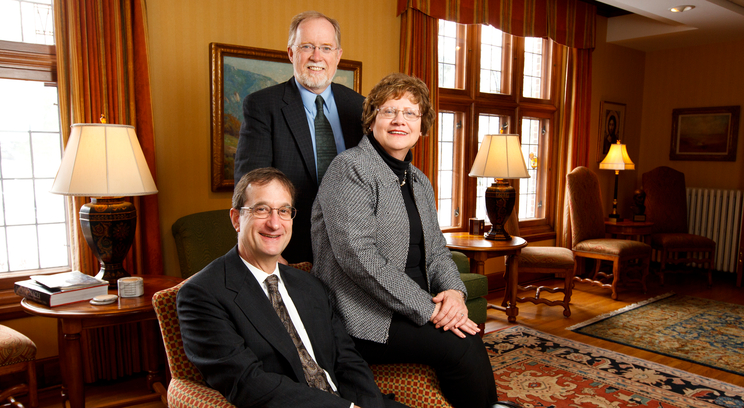This past spring, the John A. Ryan Institute for Catholic Social Thought selected Brian Shapiro, associate professor of accounting, as its newest research fellow. The Research Fellow Program had been established to create opportunities for the Opus College of Business faculty to engage in scholarship and research on the relationship of Catholic social thought and business. Mike Naughton, director of the Ryan Institute, believes that this collaboration between Catholic Studies and the Opus College of Business creates conditions for St. Thomas to enhance the mission-driven character of its business education. Naughton explains that current fellow Dr. Jeanne Buckeye’s research on the Focolare movement’s Economy of Communion program is “a case in point. With over 800 businesses worldwide, the Economy of Communion is having a significant impact on the relationship of Catholic social thought and business. Unfortunately, there is little research on this movement. Dr. Buckeye and co-author Dr. John Gallagher from Maryville College in Tennessee believe their work will be an important contribution not only to Catholic business schools but also to the larger academic community.”
The fellowship opportunity enhances the Catholic mission of the Opus College of Business by fostering the unity of knowledge and the integration of the curriculum. The fellowship provides a two-course release for the year, allowing the Ryan Fellow the time to work on the important relationships and practices of Catholic social thought and business and to contribute to the living tradition of the Church. Besides research, the fellows consult with and advise the Ryan Institute on integrating Catholic social thought and business research and education. Buckeye described her time as a Ryan Fellow as life-changing. For the first time, she says, she was able to connect an academic field she loves – management – with a set of traditions she loves even more. “I’ve discovered that the teachings and traditions of the Catholic Church are wide enough, deep enough, profound enough to enrich conversations about the economy, about people at work, about managerial principles, about business ethics, leadership and the value of education.” Through activities as a Ryan Fellow, Buckeye adds, she has encountered people from around the world who share the Ryan Institute’s passion for recognizing work as a God-given gift and the workplace as a place where God is very much present. She sees excellence in management differently now. “It’s not just about ensuring the efficient use of resources and making correct judgments; it’s about creating cultures where people can flourish.”
Shapiro’s research will examine how a local business organization’s evolving human resource policies both shape and are shaped by the organization’s managerial and accounting practices, resource constraints, external pressures and spiritual and other normative commitments in its founding documents. The study also will document how company personnel understand, interpret and evaluate their company’s employee retention, development and layoff policies in light of their company’s spiritual and normative commitments and, where applicable, in light of their company’s internal accounting practices. This is not merely an academic pursuit for Shapiro: “In addition, I anticipate that my research will provide some interesting new material for an undergraduate business senior capstone course in Theology and Catholic Studies, which I co-teach with Dr. Naughton.” Shapiro looks forward to his work as a fellow and his involvement with the people and programs of the Ryan Institute and Center for Catholic Studies.
Read more from Perspectives


